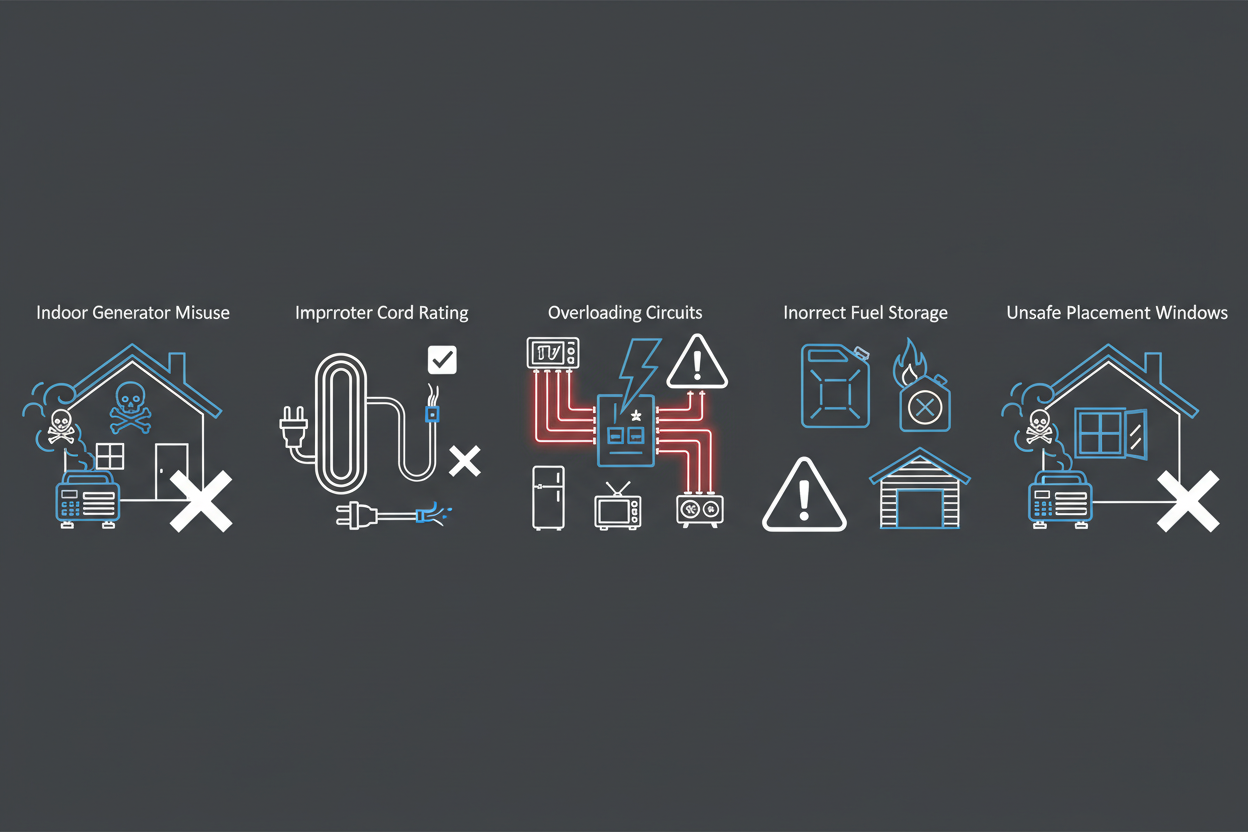Common Mistakes to Avoid When Using a Home Backup Generator
Home backup generators improve safety during outages, but improper use can create serious risks. Understanding common mistakes helps homeowners operate their generators safely.
Avoiding these errors prevents equipment damage, reduces fire hazards, and protects household health.

Common Safety Mistakes
Many generator issues stem from unsafe placement or improper connections. These mistakes increase carbon monoxide risk and electrical hazards.
- Running a generator indoors: Extremely dangerous due to carbon monoxide buildup
- Placing too close to windows: Allows fumes to enter living spaces
- Using indoor-rated cords: Causes overheating or fire risk
- Improper grounding: Increases shock hazards in wet conditions
Avoiding Electrical Overload
Overloading a generator stresses components and causes voltage instability. High-draw appliances must be used carefully during outages.
Tracking total running watts prevents overload and protects sensitive electronics.
- Do not run several high-watt appliances together
- Start compressors and pumps individually
- Keep running load below seventy percent of capacity
Fuel Handling Mistakes
Incorrect fuel storage reduces reliability and increases fire risks. Fresh fuel and proper ventilation are essential for safe operation.
Stale gasoline and unsecured propane cylinders create avoidable hazards during emergencies.
- Never refuel a hot generator
- Store gasoline outdoors in approved containers
- Keep propane cylinders upright and properly secured
Maintenance Oversights
Poor maintenance leads to hard starts, reduced runtime, and unexpected shutdowns. Routine care ensures consistent performance during outages.
Simple tasks like checking oil and running monthly test cycles prevent most failures.
- Check oil level before each use
- Inspect air filters regularly
- Test-start the generator monthly
Conclusion
Avoiding common mistakes makes home backup generator use safer and more reliable. Proper placement, correct fuel handling, and careful load management protect your household during outages.
Related Guides
- Home Backup Generator Pillar Page
- A1. Homeowner Benefits
- A2. Sizing Basics
- A3. Connection Methods
- A4. Fuel Planning
- A5. Use Cases
- A6. Noise Benefits
- A7. Clean Power
- A8. Fuel Efficiency
- A9. Safety Placement
- A10. Maintenance
- A11. Essential Devices
- A12. Runtime Guide
- A13. Sizing Guide
- A14. Household Protection
- A15. Seasonal Tips
